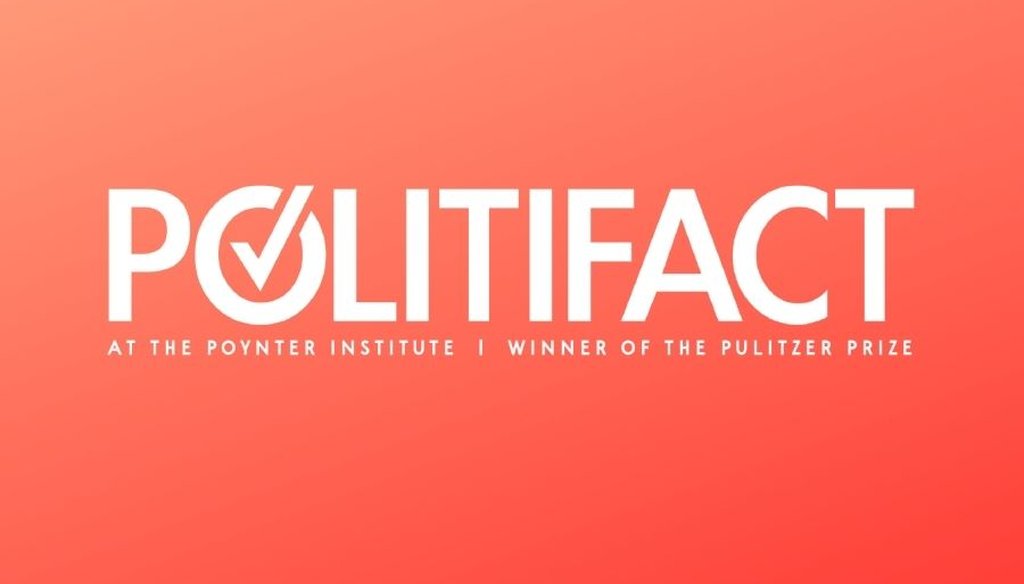Stand up for the facts!
Our only agenda is to publish the truth so you can be an informed participant in democracy.
We need your help.
I would like to contribute

President Barack Obama spoke out about the Affordable Care Act on Sept. 26, 2013, at Prince George's Community College in Largo, Md.
The Affordable Care Act reaches a milestone on Oct. 1, 2013, when health insurance marketplaces that were set up as part of the law begin enrolling people.
Many claims on both sides of the political aisle have been made about President Barack Obama’s signature legislative accomplishment, which has been implemented in phases since becoming law in March 2010.
This next phase of Obamacare presents a good opportunity, factcheck-wise, to review where we’ve been.
So here, in no particular order, are 10 Obamacare claims rated by PolitiFact National and PolitiFact Wisconsin.
Rationing of care
Sign up for PolitiFact texts
1. The health care law rations care, like systems in Canada and Great Britain. False.
-- Florida Gov. Rick Scott, July 2, 2012, in an interview on Fox News
The health care law is not socialized medicine. Instead, it leaves in place the private health care system that follows free market principles, PolitiFact National found. The law does put more regulations on health insurance companies. It also fines most large employers that fail to provide insurance for their employees, and it requires all individuals to have health insurance. This is unlike the systems in either Britain or Canada. In Britain, doctors are employees of the government, while in Canada, the government pays most medical bills as part of a single-payer system. The U.S. health care law has neither of those features.
Exempting Congress
2. Congress is exempt from Obamacare. False.
-- Chain email, Jan. 6, 2013
Even a few sitting lawmakers have repeated this claim, but it’s not true, our national colleagues determined. Congress is not exempt from Obamacare. Like everyone else, lawmakers are required to have health insurance. They’re also required to buy insurance through the marketplaces. The idea is to have lawmakers and their staff buy insurance the same way their uninsured constituents would so they understand what their constituents have to deal with. Most Americans who already get insurance through work are left alone under the law; members of Congress have insurance through work but are treated differently in this regard. Recently, a rule was added so that lawmakers’ could keep the traditional employer contribution to their coverage. But they weren’t exempt from requirements that other Americans face.
Health care costs
3. Because of Obamacare, health care premiums have "gone up slower than any time in the last 50 years." False.
-- President Barack Obama, Oct. 3, 2012, in a presidential debate
The historical data for health care premiums only goes back 14 years; there’s no evidence to support the idea that premiums are at a 50-year low, PolitiFact National learned. Overall health care costs have slowed down, but even there, Obama exaggerated the impact of his health care law. Experts say slowing costs are due to a variety of reasons, including the recent recession. Giving all the credit to the new law overstates the case.
4. Due to Obamacare, increases in health care spending are at record lows. Half True
-- U.S. Rep. Ron Kind (D-Wis.), Aug. 2, 2013, in a speech
Kind said that since the passage of the Affordable Care Act, "U.S. health care spending grew at 3.9 percent for the last three years, the lowest growth rate in over 50 years." The statistical part of the claim is mostly accurate. But despite Kind’s implication that Obamacare was key in reducing the growth of health care spending, the evidence suggests its role was modest, PolitiFact Wisconsin found.
Small businesses
5. Under Obamacare, "75 percent of small businesses now say they are going to be forced to either fire workers or cut their hours." Pants on Fire.
-- U.S. Sen. Marco Rubio (R-Fla.), July 25, 2013, in a FoxNews.com opinion column
Suggestions that business are laying off workers because of the health care law have so far proven to be largely unfounded, according to PolitiFact National. Most small businesses -- those with fewer than 50 employees -- do not have to provide health insurance to their employees. (In fact, some very small businesses with fewer than 25 employees may qualify for tax credits under the law.) The claim here that 75 percent of small business were reducing their workforce was based on a misreading of a study from the U.S. Chamber of Commerce. The study actually found that less than 10 percent of small businesses said they will be forced to reduce their workforce or cut hours.
IRS role
6. The IRS is going to be "in charge" of "a huge national database" on health care that will include Americans’ "personal, intimate, most close-to-the-vest-secrets." Pants on Fire.
-- U.S. Rep. Michele Bachmann (R-Minn.), May 15, 2013, in an interview on Fox News
The Internal Revenue Service does have a role to play as part of the health care law, but it’s not the role suggested here. If you buy insurance on the marketplace and you get a subsidy, officials will check tax records to make sure you qualify, our national colleagues determined. That communication with the IRS happens via a data hub that’s also connected to the U.S. Department of Health and Human Services. It’s important to note, though, that the hub isn’t a database. The IRS isn’t running it. And it doesn’t include "intimate" health data. The hub is for signing up for health insurance, not for storing medical records.
Wisconsin funding
7. Wisconsin didn’t lose any money in rejecting an expansion of Medicaid under Obamacare. Mostly False.
-- Wisconsin Secretary of Health Services Kitty Rhoades, June 6, 2013, in a speech
Rhoades said Wisconsin is "not walking away from a dime" in federal funds by rejecting a Medicaid expansion under Obamacare. There was an element of truth in her claim, in that under Gov. Scott Walker's alternative plan, some level of federal funds will flow to Wisconsin insurers and health care providers based on the number of people who choose to buy health insurance through Obamacare exchanges. But we found that the criticism of Walker’s rejection of the expansion focused on the impact on state government -- $119 million just in the next two years, a figure Rhoades didn’t dispute.
Personal physicians
8. Under Obamacare, people who "have a doctor they’ve been seeing for the last 15 or 20 years, they won’t be able to keep going to that doctor." Mostly False.
-- U.S. Sen. Marco Rubio (R-Fla.), July 31, 2013, in a Fox News interview
Some have suggested that Obamacare would interfere with doctor-patient relationships. Actually, there’s no more interference than what existed before Obamacare, according to PolitiFact National. Right now, patients can lose access to their doctors when their insurance policies change. This typically happens when employers switch plans or when workers switch (or lose) jobs. Under Obamacare, some patients who buy health insurance through the marketplace could lose access to their current doctor, but it’s difficult to predict how many. And it would be because they have a new insurance plan.
Pre-existing conditions
9. Before Obamacare, 17 million kids with pre-existing conditions were uninsurable. False.
U.S. Sen. Tammy Baldwin (D-Wis.), Jan. 31, 2013, in a speech
Baldwin said that when the Affordable Care Act was signed in 2010, 17 million American children had a pre-existing condition and were "uninsurable." It’s possible that as many as 17 million children had a pre-existing health condition, PolitiFact Wisconsin found, but the figure could be as low as 4 million. And only a fraction of children with pre-existing children didn’t have insurance because of that condition.
Tax increase
10. "Obamacare is . . . the largest tax increase in the history of the world." Pants on Fire.
-- Rush Limbaugh, June 28, 2012, on his radio show
Limbaugh and others have claimed the health care law includes historically high tax increases. While there are new taxes in the health care law -- representing the first significant federal tax increases since 1993 -- they are not the largest increases in the history of the United States, much less the world, PolitiFact National determined. When accounting for the size of the overall economy, tax increases signed into law by Presidents Ronald Reagan and Bill Clinton were larger than the tax increases in the health law.
For more on Obamacare, see PolitiFact National’s article, "Top 16 myths about the health care law."
To comment on this item, go to the Milwaukee Journal Sentinel web site.
Our Sources
Truth-O-Meter items, as noted






















































